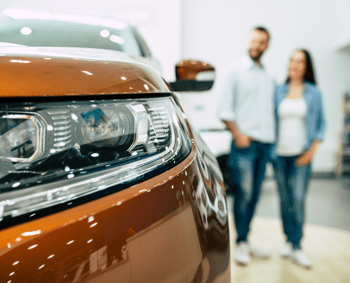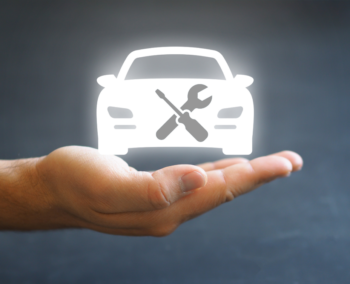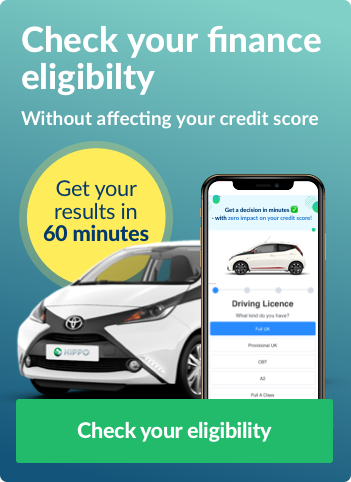
Buying a new car is an exciting prospect. And with enthusiasm levels at their peak, it’s tempting to rush in and finally get on the road with it. But, rein in the excitement levels just a little because buying a car is a big deal, and you have to make sure it’s the right one for you.
Here are our top 13 tips for buying a new car and getting your best finance deal.
1. Ask yourself – do you need a new car?
Everyone wants a shiny brand-new car with all the latest gadgets. But do you actually need one? It may not be what you want to hear, but a new car can depreciate significantly over the first few years of ownership. So, if your current car is only a few years old, keeping hold of it could save you in finance costs, insurance, and depreciation.
However, if your car is out of warranty, growing troublesome and has outgrown your needs, it may be time to trade up. Essentially whether you buy a new car or not depends upon two things – the condition of your car and the condition of your finances.
Read: Car depreciation guide: How to buy a car that holds its value
2. Make a budget
Before you even start pouring over car websites and lingering in showrooms, you need to set an affordable budget. If you’re buying the car on finance or with a loan, you’ll have to factor in potentially a deposit and monthly repayments in the future.

Other ongoing costs include fuel, car insurance, road tax, MOT, servicing and any repairs. The running costs can add up, and there’s not much point in having a new car if you can’t afford to take it anywhere.
If you’re looking for a cheaper car to run, a hybrid or electric car could be right. They are eco-friendly but cost more to buy (although some come with government grants). They also tend to hold their resale value.
Want to save on road tax? Check the C02 emissions of the car, as they will affect the duty you have to pay.
And it’s a good idea to get some insurance quotes for various models to see if choosing a different car could save you money.
3. Pick a car that fits your lifestyle
Once you’ve crunched the numbers and know what kind of car you can afford, you can start looking around. It might be a good idea to have a look online before you hit the dealership to whittle it down to a manageable selection.
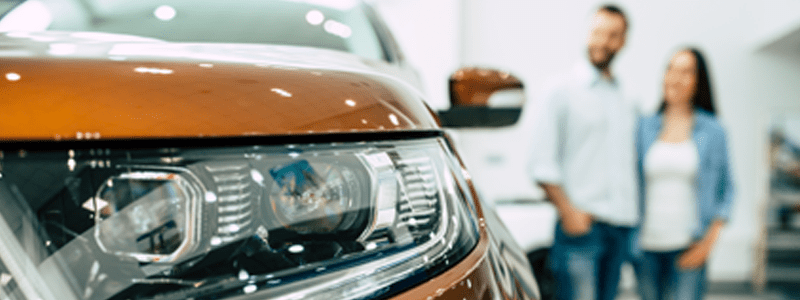
Ask yourself what you really need from the car. Do you need it to drive around family? Will you need more boot space for a pram, camping or sports gear? Where will you be driving it – is it just for short city drives, or will you wrack up more miles?
Which fuel type do you want – petrol or diesel? Or could you consider a hybrid or electric car? Diesel is generally more expensive to buy but have better fuel economy, so if you’re racking up the miles annually, they could be more cost-effective in the long run.
Answering these questions will get you closer to picking the right car for you rather than one that may look amazing but be entirely impractical for your needs.
4. Where to buy your new car
You have a few options when it comes to where you buy your new car. Dealerships have the advantage of knowledgeable staff regarding the cars and your finance options. It gives you the chance to see the cars together and make comparisons. Plus, there’s typically better aftersales support, invaluable should something go wrong.
Another option is to buy from a broker. Usually, you can find them online, and they will source you a deal from a franchised dealer. It can be less hassle, but you won’t have the advantage of seeing the car as you do with a dealer.
5. Think about part exchanging your car
If you need to sell your car and buy a new one, part exchanging your car at the dealership might be the answer. Part exchange means the dealer will give you a price for the value of your current car as a discount on the new one or a lump sum to help pay off any outstanding finance on your current vehicle.
You won’t get as much for your car as you would do selling privately, though, so that’s something to consider. However, it’s generally far less hassle and time consuming than arranging the sale of your car yourself.
Read: What is part exchange on a car and is it worth it?
6. Try before you buy
You’ve read all the reviews and know the features of the car you want inside and out. But to really find out if it’s the right car for you, 10 minutes behind the wheel will tell you almost everything you need to know.

If you can, you should always give your car a thorough test drive before buying it, checking the car’s handling, comfort, braking, gadgets, and features. Try to test the car out on different types of roads, too, such as dual carriageways or country lanes. If you can’t drive the car beforehand, find a broker or dealer with a guarantee or warranty that allows you to return the vehicle if you don’t like it.
7. Know the resale value
Let’s talk depreciation again, as it’s a key factor when it comes to new cars. A new car can depreciate as soon as it drives off the forecourt and will continue to do so for the first few years. It does slow down as it ages, but it’s also affected by mileage and condition.
Fuel-efficient cars usually depreciate more slowly, and depreciation is also affected by model replacements, meaning that a brand-new one may lose value more slowly than one which is about to be replaced.
Think about the risks of depreciation – how long do you want to hold on to the car before you come to sell it? Perhaps leasing could be an option if you’re not bothered about owning the car. Check car listings for a rough idea of how much the car could be worth when you come to sell it (don’t forget to take into account mileage).
8. Choose the right car finance option
From cash to car finance, there are many different ways to purchase a vehicle nowadays. The benefit of buying a brand new car is that there are always offers to be had whether you’re looking for 0% deposit options or contributions that can bring your monthly payments down.
If depreciation is a worry, perhaps a PCP deal or lease would be better where you could trade your car in at the end of the term for a new one. Or is stability a more important factor – would you like to own the car at the end of your agreement, because then hire purchase may be a better idea.
Read: Car finance explained: What is it and how does it work?
Rates from 12.9% APR. Representative APR 18.9% We are a credit broker, not a lender.
*a hard search will be performed if you decide to proceed
9. Optional extras
One huge benefit of buying a new car is it’s a good way to get all the latest gadgets. A new car can have it all, from safety features, such as a rear camera or lane-departure warning systems, to the latest entertainment systems.
Safety aside, though, most new cars now come with a bewildering list of optional extras. And while it’s tempting to go overboard with the gadgets, they will often hike up the price of the car but not necessarily add value to it.
Certain features buyers will deem essential, such as air conditioning, built-in sat-nav, cruise control and parking sensors. Others such as leather seats, in-built Bluetooth, upgraded mirrors, and sunroofs may not add so much value to your car but could appeal to a buyer later down the line.
Don’t dismiss colour choice either. It’s usually wise to play it safe rather than go all out on a more unusual colour. However, metallic paint is usually a good addition.
10. Choose your time wisely
Picking the right time to buy your new car could save you some money too. If you want to browse the dealership to find the right car, avoid weekends and straight after payday when they can traditionally get busy. March and September – as the registration plates are released – are also generally when showrooms are busiest.
Much like general retail, sales periods tend to run every quarter, so shopping towards the end of March, June, September, and December can often result in some good deals. Look out for any sales events, too, such as bank holiday weekends.
If you know the model you want, check to see if an update or newer version is coming soon, as there are always possible savings to be made on a ‘run-out’ model.
Think about the time of year too. 4x4s will be more in demand come the winter months, so if you want one think about purchasing in summer. And vice versa if you’re dreaming of buying a convertible.
11. Read the small print
Granted, it’s not as much fun as taking a test drive, but it’s just as important. If you’re buying the car on finance, make sure you know the total price. Or, if you’ve requested optional extras, ensure you have them in writing.
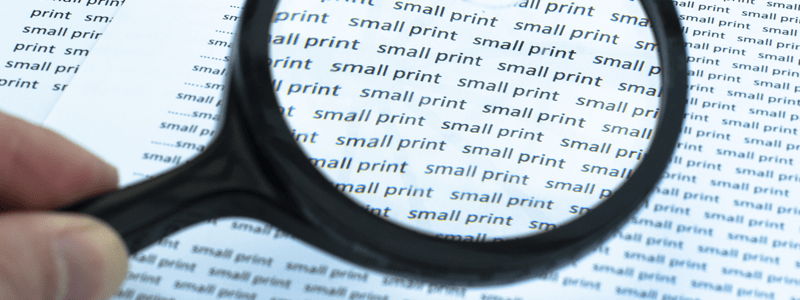

Spend some time going through all the paperwork, and it will give you peace of mind and added security that you’re getting what you paid for.
12. Take your time
Buying a new car is a big decision, so it’s wise to take your time. Go for a few test drives and try out different models. Research your options and think about the pros and cons, as well as the best way to finance it before you make any final decisions.
13. Use a car finance eligibility checker to get preapproved
You could spend weeks looking for a new car, only to find that your finance application has been rejected and you’re back to square one. Finding out if you’re preapproved means you’ll receive a confirmation on whether you’re likely to be accepted, which will save you time and won’t impact your credit score.
Rates from 12.9% APR. Representative APR 18.9% We are a credit broker, not a lender.
*a hard search will be performed if you decide to proceed

